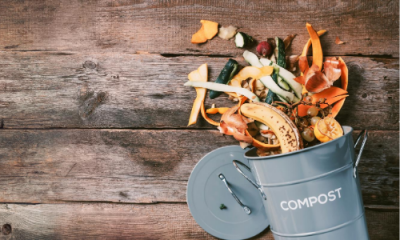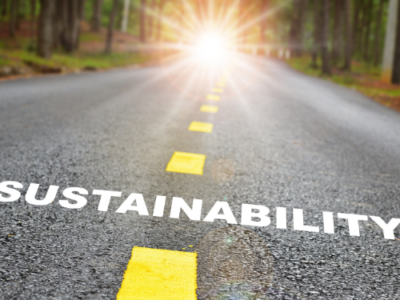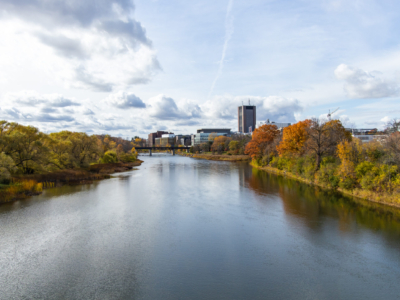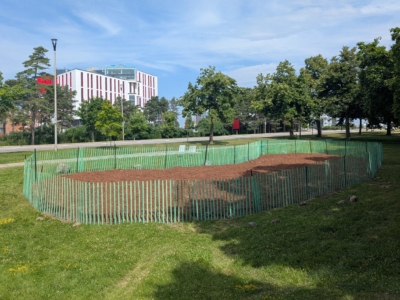Did you know?
If global food loss and waste were a country, it would be the third-largest greenhouse gas emitter in the world. In Canada, nearly 60 per cent of food produced is lost or wasted each year, which is equivalent to 35.5 million tonnes of food wasted. As a result, a staggering 56.6 million tonnes of carbon dioxide equivalent emissions are created by food waste each year!¹
Let us all work together in reducing our carbon footprint. Here are some tips you can follow to help you reduce your food waste, save money, and protect the environment.
How to get started…
- Shop smart.
Before grocery shopping, plan your meals ahead of time. Write a shopping list and stick to it. Avoid overbuying as this can result in food waste. Tip: If available, consider buying “ugly” produce that is usually left behind at the grocery store but is still safe to eat. “Ugly” produce often have slight blemishes and can sometimes be found at discounted prices. You can use this for smoothies and soups and you won’t be able to tell the difference!
- First In, First Out (FIFO). Follow the FIFO Rule: First In, First Out, an effective system for storing and rotating food. Reduce the amount of food being wasted by putting items with the soonest best before date at the front and place items with furthest dates at the back. FIFO helps reduce food waste by keeping older food from being shoved at the back where it can often be forgotten or overlooked.

- Freeze the extra. Use your freezer to store most foods until you are ready to eat them. Some foods you can freeze are meat, cheese, fruits, vegetables, bread, cooked rice and pasta, flour, sauces & stocks. Check Government of Canada’s recommended food storage tips here.

- Get creative with your food scraps! Here are some clever ways to use food scraps:
- Start a scrap garden. Re-grow your vegetables from scraps. Cut off the plant’s base about 1 inch tall. Place it cut side up in a container halfway with water and place it by a sunny window and watch it grow! Some vegetables you can re-grow are romaine lettuce, celery, green onions, bok choy, garlic, leeks, onions, and carrots.
- Make a broth with leftover food scraps. You can save peelings, stalks, and leaves. Some key ingredients for broth are onions, carrots, celery and garlic. Make sure to wash your vegetables before using the scraps and place them in your freezer.

- Find useful resources such as the Flashfood App. For example, Flashfood is a free app that finds discounted food from a grocery store near you. It helps grocery stores divert waste from the landfill by offering big discounts on food nearing its best-before date, and it helps consumers save money on food!

- Compost! Use the City of Ottawa green bin for organics collection or start your own compost pile to use for your garden. Composting leftover food is beneficial for the environment as it turns food waste into energy for plants.

- Have extra food you don’t need? Consider donating your extra supply of packaged food to a local food bank or food drive. Local food banks in Ottawa: Parkdale Food Centre and Ottawa Food Bank.
Curious to learn more?
Carleton’s Mission to Reduce Food Waste
 Canada’s largest food rescue organization, Second Harvest, developed an online platform known as FoodRescue.ca that connects businesses with excess unsold food to local social service organisations who will put it to great use!
Canada’s largest food rescue organization, Second Harvest, developed an online platform known as FoodRescue.ca that connects businesses with excess unsold food to local social service organisations who will put it to great use!
Carleton Dining has utilized FoodRescue.ca to establish recurring weekly donations for items such as all of our unsold to-go Express meals. Through FoodRescue.ca, Carleton Dining has been able to keep over a thousand equivalent meals out of the compost bin and instead into the hands of people who need them most.
Organizations who focus on rescuing food waste:
- Second Harvest – Canada’s largest food rescue charity. They recover nutritious, unsold good and redistribute it to a network of social service organizations.
- Food Sharing Ottawa – A voluntary organization in Ottawa that takes care of all the food people cannot sell or use anymore. Their volunteers pick up unwanted food to share it with the Foodsharing network: “Share it – Don’t toss it!”
- Hidden Harvest Ottawa – Did you know in Ottawa there are 17,400 fruit and nut trees that go unharvested every year? Hidden Harvest Ottawa helps connect tree owners with volunteer harvesters and shares it with those in need in the community. You can volunteer to help harvest trees or if you own a food-bearing tree that you are interested in sharing the harvest, find more information here.
Sources:
¹Nikkel, L., Maguire, M., Gooch, M., Bucknell, D., LaPlain, D., Dent, B., Whitehead, P., Felfel, A. (2019). The Avoidable Crisis of Food Waste: Roadmap; Second Harvest and Value Chain Management International; Ontario, Canada
Wednesday, August 19, 2020 in General, News, Sustainability Tip
Share: Twitter, Facebook



